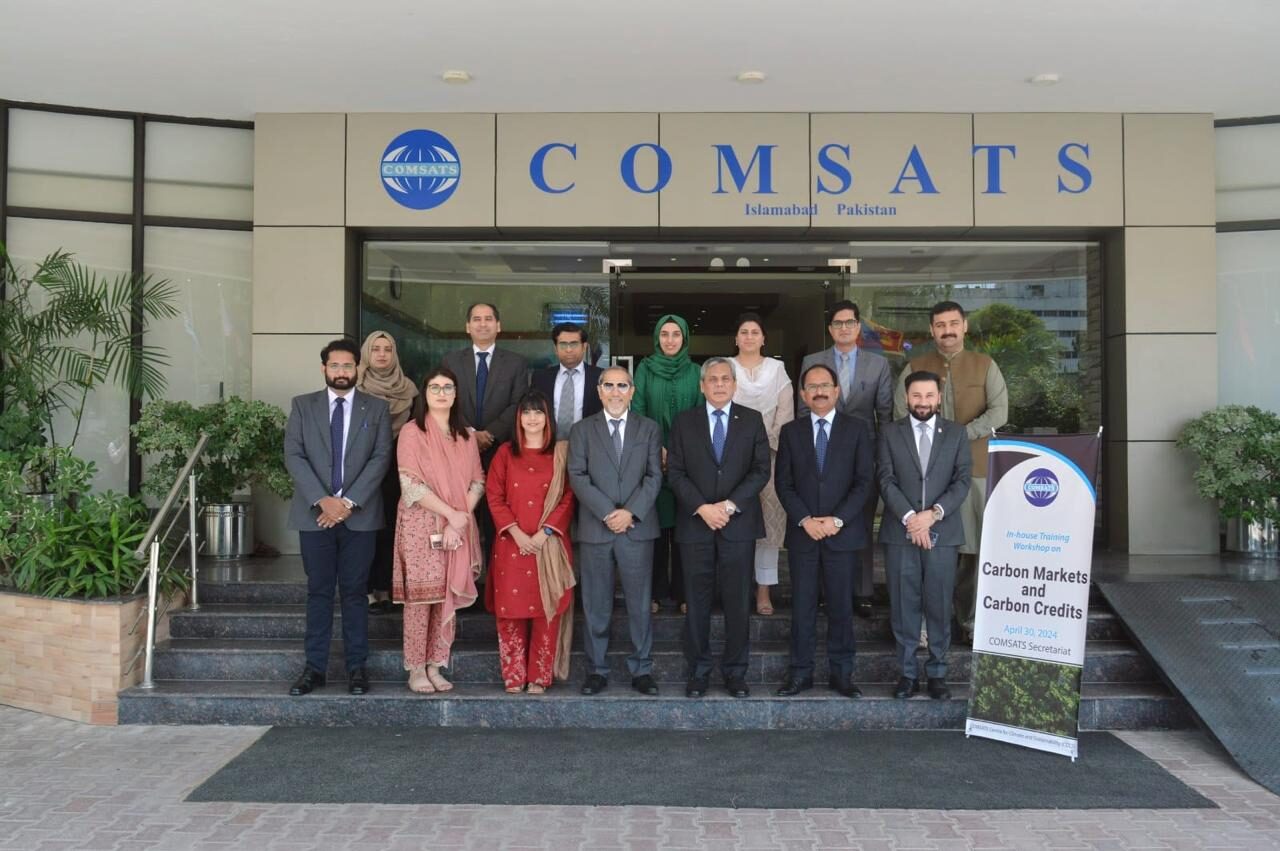ISLAMABAD( WNAM REPORT): Recognizing that there is a pressing need to raise awareness and build capacity among stakeholders about carbon market mechanisms, especially in light of the discussions and developments made during COP28, where Article 6 played a pivotal role, COMSATS Centre for Climate and Sustainability organized an in-house training workshop on Carbon Credits and Carbon Markets.
The workshop agenda encompassed a comprehensive overview of Carbon Credits and Carbon Market, Carbon Trading Mechanisms, Project Cycle and Key Players in the Carbon Market. Participants gained insights into Core Carbon Principles and Project Integrity, understanding their own carbon footprints, and theories applied in setting up National Emissions Trading Systems. Additionally, discussions covered carbon trading prospects in Pakistan, emerging carbon trading policy frameworks, and real-world case studies.
Ambassador Dr. Mohammad Nafees Zakaria, Executive Director of COMSATS, delivered the opening remarks, emphasizing the significance of leveraging carbon markets for common benefit. He highlighted COMSATS’ role as an intergovernmental organization with a network of 25 Centers of Excellence, poised to unlock the benefits of carbon credit and carbon market.
Dr. Zakaria stressed the importance of reducing all sources of GHG emissions close to zero and encouraged participants to seek guidance from experts on the basics, regulations, and issuance process of carbon credits. Dr. Sohail Malik, Technical Team Leader at the Climate Resourcing Coordination Centre (CRCC), shared insights on Carbon pricing instruments for achieving decarbonization objectives, including emission trading systems, and provided an overview of international practices. He delved into the evolution of carbon markets globally over the last two decades and elucidated the Carbon Offset Project Certification Process.
The Senior Representative of Ministry of Climate Change and Environmental Coordination (MoCC&EC), Government of Pakistan, presented a case study on project registration with carbon standards Verra. He provided detailed insights on Delta Blue Carbon, outlining the preparation document required for Carbon credit and offset projects. The representative of Ministry of Climate described the potential integration of carbon credit and offsets toward Pakistan’s Nationally Determined Contributions (NDCs) and also highlighted the efforts of Government of Pakistan in reducing major emissions. Moreover, he offered an overview of emerging global Carbon markets and the impact of their price variation on decision-making processes.
Ms. Minha Hanif, Climate Change Analyst at Resources Future, provided participants with insights into the project cycle of carbon credits, the Core Carbon Principles including governance and sustainable development, and the concept of project baseline, boundaries, and leakages. She engaged in an interactive discussion with participants, posing questions about some case projects to enhance their understanding of the types of projects that generate carbon credits.


